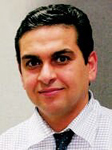Selected Professional Appointments
Professor, Department of Civil and Mineral Engineering, University of Toronto
Coordinator, Centre for Information Systems in Infrastructure and Construction
Coordinator, U of T Intelligent Buildings Digital Twin
My work on asset management focuses on change management, policy making and modeling organizational competency. How can operational policies and rehabilitation decisions make facilities smarter, more sustainable and achieve higher levels of services? My students and I work on the redesign of the environmental impact assessment process to foster life cycle analysis and the co-creation and re-use of knowledge. As part of automating work processes, we used machine learning to predict road conditions using data that is free and context-sensitive. Instead of a generalized deterioration curve, the new algorithm is cognizant of local conditions, such as weather and traffic levels. Further, what are the costs, what are the impacts on levels of services? The same approach is used to evaluate the efficiency of road maintenance policies: how frequent and how extensive?
Infrastructure in the future city will be designed not to mitigate negative impacts on sustainability. Rather, making new projects empower communities and become mechanisms for regenerative sustainability. Decision making is not about power. It is about making urban projects a conduit for innovation democratization and empowerment: citizens co-creating new solutions for climate action not only through configuring the physical aspects of the project but also through collaborative behavior change and supportive, community-driven operational policies. Project analysis and optimization is not about reducing impacts on the environment or citizens’ options.
The new digital twin at U of T will develop a platform that will use interactive virtual reality gaming to support urban dialogue; anticipatory computing to deliver relevant data to citizens to support informed creativity; and social and semantic network analysis to track patterns of opinion change and to distill ideas and formalize the knowledge they generate. With an increased technical agency and powered with analytics tools, citizens are, now, equal and creative co-producers of knowledge. We use network analysis to extract context-sensitive ideas form end-user input.
Specialty Focus Areas
Construction project management; building information modeling; smart city infrastructure (asset management, business intelligence); socio-semantic analytics for community engagement.
Email: tamer@ecf.utoronto.ca
Phone: (416) 978-8653
Website: http://www.civil.engineering.utoronto.ca/staff/professors/eldiraby.htm

